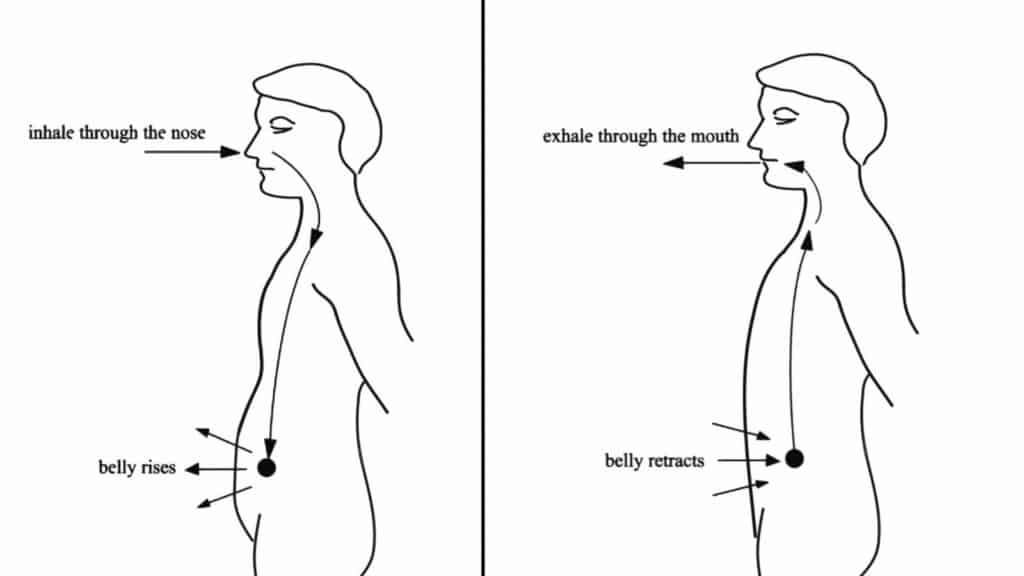There are many nightly routines you may take part in. You brush your teeth and wash your face. You may hug and kiss family members goodnight. Additionally, you might even have your own set of unique “rituals” each night before bed. But how many of those rituals involve simply taking time to stop and think?
Your brain works hard to prepare you for what is going to happen next. As such, training it to follow certain lines of thought nightly can hugely impact the following day.
Here Are 6 Things You Should Think About Every Night Before Bed
1. What You Did All Day
Recounting your day before you hit the hay is always a good idea. Some people use journals or diaries. Some express it in the form of art. More still simply lie back and quietly reflect back on their day.
Why is this important? It’s simple.
- Humans are constantly learning every single day.
- If your development and growth have come to a standstill, it may be because you are ignoring lessons or failing to apply them correctly.
- Pondering them before bed gives you the chance to internalize them.
If you made a mistake that day, use positive thinking to analyze it. Consider why it happened and determine what you can do next time to avoid the same error. If you can’t find a solution, take it in steps every night until you do. For example, if you angered someone, think about your speech, your body language, and other factors that may have caused it.
If you did something good during the day, smile fondly as you remember it. Think about why or how you did that good thing, and consider ways to recreate it in the future, or find out what you’ve learned from it. For example, if you impressed your boss, think about what happened to lead up to that so you can do so again.
What if your day wasn’t particularly interesting, or just monotonous? Still, think about it! There’s nothing wrong with a so-called “boring” day. They give your body and mind a break from the busy schedules and chaotic world so you can go through the motions and sharpen old skills. Not happy about the monotony? Now’s the time to think about how to change it!
2. Positivity For Tomorrow
No, we aren’t saying that you should stress yourself out about a schedule before bed – though some people find that making a to-do list for the next day does help them. If it works for you, why not? But what we’re really referring to is arming your brain with the motivation it needs to conquer the following day.
Many of us have goals and dreams, but they tend to sit in the background as we focus on getting to a position where we feel comfortable even having them. If you’re occupied with repetitive work, it’s likely that your goals aren’t at the forefront of your mind.
So, every night, remind yourself of these goals. Then, think of tomorrow, and imagine a positive result while working towards your goals. Imagine a good day, and envision a successful tomorrow. This works so well that a lot of the most successful individuals worldwide do this every night without fail!
If you’d like, you can also make small short term goals for the following day only. This will help you wake up with a purpose in the morning. Some examples are:
- Eating a healthy lunch
- Working out for even a short while
- Doing well at work in general
- Spending time with your significant other
- Making extra time to watch a show you like
You can also make other short-term goals on a weekly or monthly basis that you remember every night leading up to their “deadline.” For example:
- Saving up to go for a treat (like buying new clothes or appliances, or going out on a date)
- Eating well so you can have your favorite meal on a cheat day
- Finishing additional work (if you’re self-employed) so you have more free time for an extra day off
At the end of the day, you decide what kinds of goals work best for you. Keeping them in your mind and envisioning good outcomes from them nightly is a great way to make them happen!
3. What You’re Grateful For
Counting your blessings seems like a minor thing to do, but it’s a very good nightly habit. Every single day, as you prepare for bed, think of things you are grateful for. Just one thing is enough. If you like, you can even keep a thankfulness journal where you list these things!
Why should you do this? It’s a great way to end your day with positive thinking. When you feel good about yourself and what happened during the day, you can enjoy a happier and more restful sleep. Instead of being filled with worries, you’ll be filled with peace when you know you have a lot to be happy about.
Having a very bad day where it seems nothing went right? Here are some examples of very simple things you can meditate on being grateful for:
- Having a roof over your head
- Having a job that pays the bills
- Enjoying sufficient food and water
- Getting on a train or bus on time
- Knowing your loved ones care for you
- Being equipped with electricity, water, and/or heating
- A good drink or a tasty snack you enjoyed
- Your good health
- The bed beneath you that you sleep on
- Fond memories
- Your energy and spirit that has allowed you to keep going in difficult times
You can even find ways to be grateful for bad things. Here are some examples of those types of things:
- Receiving the opportunity to make a mistake and learn from it
- Being corrected so you know better
- Finding out about a toxic person so you can move on and be free from negativity
The truth is that there is always something to be grateful for – we just often forget these things are there. Actively considering them every night is a great way to make sure you stay humble, grounded, and happy.
4. Breathing
Many people struggle to fall asleep. If you’re one of them, something you should think about nightly is your breathing. Relaxation comes naturally to some and is a challenge to others. If you fall into the latter category, you have to train yourself to relax in bed. Don’t worry, it’s not as hard as it sounds!
Meditation is one way to do this, and you can find plenty of guided meditation videos on the Internet. But more importantly, you need to know how to breathe correctly. Even the most pristine meditation plan will fail if you can’t breathe the right way.
- Close your eyes while you lie in bed and concentrate on your inhalations and exhalations.
- Fill your lungs deeply and empty them in long breaths.
- There are a lot of breathing exercises you can find online, so look them up and find one that works best for you.
This works because meditation is about focusing your mind on one specific thing – and in this case, it will be your breathing. This allows your brain to tune out and remove unnecessary thoughts that are preventing your sleep.
5. Forgiveness
Many people have the tendency to be too hard on themselves. Yes, reflection and admission of mistakes is important. It’s not good to believe you’re never at fault; you need to own your flaws and work towards improving them.
But this doesn’t mean that you’re supposed to expect yourself to be a superhero or a robot. Beating yourself up over every single imperfection or error in your life is unproductive and mentally unhealthy, and it gets in the way of your ability to sleep.
Instead of using your bedtimes to wallow in self-hatred about something you’ve done, try to be productive about it. Find ways to solve the issue and see it as an opportunity to change and improve. Be grateful for the lesson you can learn from it.
But more importantly, you should take the time to forgive yourself. To err is to human, and it is impossible to never mess up. Every night, give yourself permission to make these mistakes and forgive yourself for them; be proud of yourself for having the strength to acknowledge them and work to fix them.
Doing this gives you confidence and it can make you stronger. After a while of this, you may find you no longer need to forgive yourself – you automatically love yourself and are more positive, and no longer beat yourself up over errors.
6. Positive Affirmations
The mind is a powerful thing. Think with negative thoughts, and you’ll attract negativity. Use positive thinking, and positivity will come to you. It’s not foolproof, of course, but no one can deny that 99% of the time, it absolutely works! And when it doesn’t, that positive thought can lead to better mishap handling and resolution.
So, every night before you close your eyes, tell yourself positive affirmations. It can be any kind of message you like that will empower you and reactivate parts of your brain that keep you calm and happy. Here are some examples:
- I trust myself and my judgment.
- I am capable of incredible things.
- In my heart, I am not afraid of being wrong or making mistakes. My mistakes do not define me and I learn from them.
- I will wake up tomorrow feeling happiness and joy for living.
- I can make my own success. Because I am made for success, success is destined for me.
- I am confident in my abilities.
- I make the best out of unexpected situations.
- My approval is all I need because I love myself.
- I am proud of myself and I choose to be proud of myself every day.
We are often surrounded by negativity. Telling yourself positive statements every night can help to ward them off and protect you from them. They’re also a highly effective method and have been scientifically proven to work, so they top the list of things you should think about every night before bed.
Final Thoughts On Things You Should Think About Every Night Before Bed
Thought is a powerful thing. Your brain is wired to respond well to positive thought, and your body follows suit. While mood disorders can dampen their effects, the fact remains that using these lines of thought before bed can have amazing effects on your life.
Yes, it sounds a bit far fetched. Can just thinking about something really make it work? Well, to that we say: try it! You just might be surprised by how much your life improves.














 Community
Community

